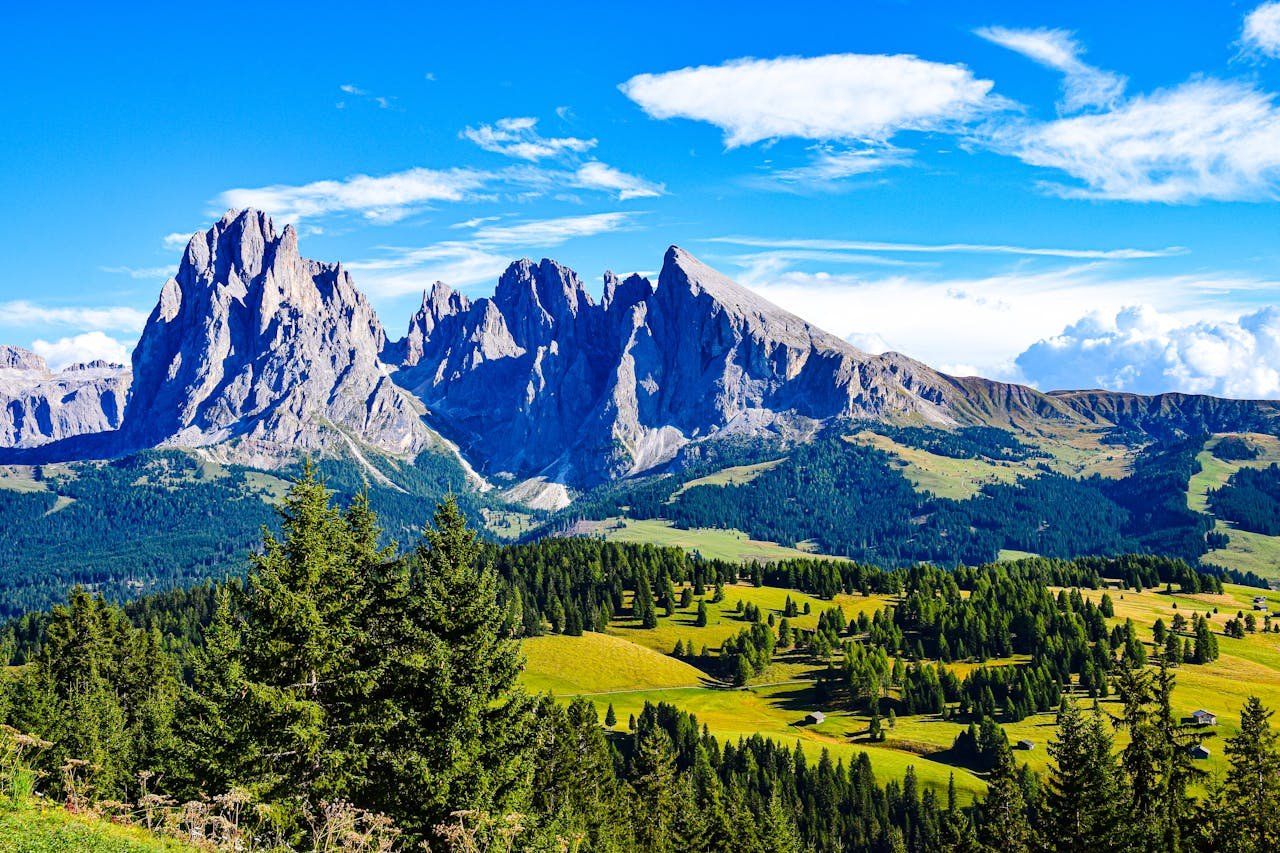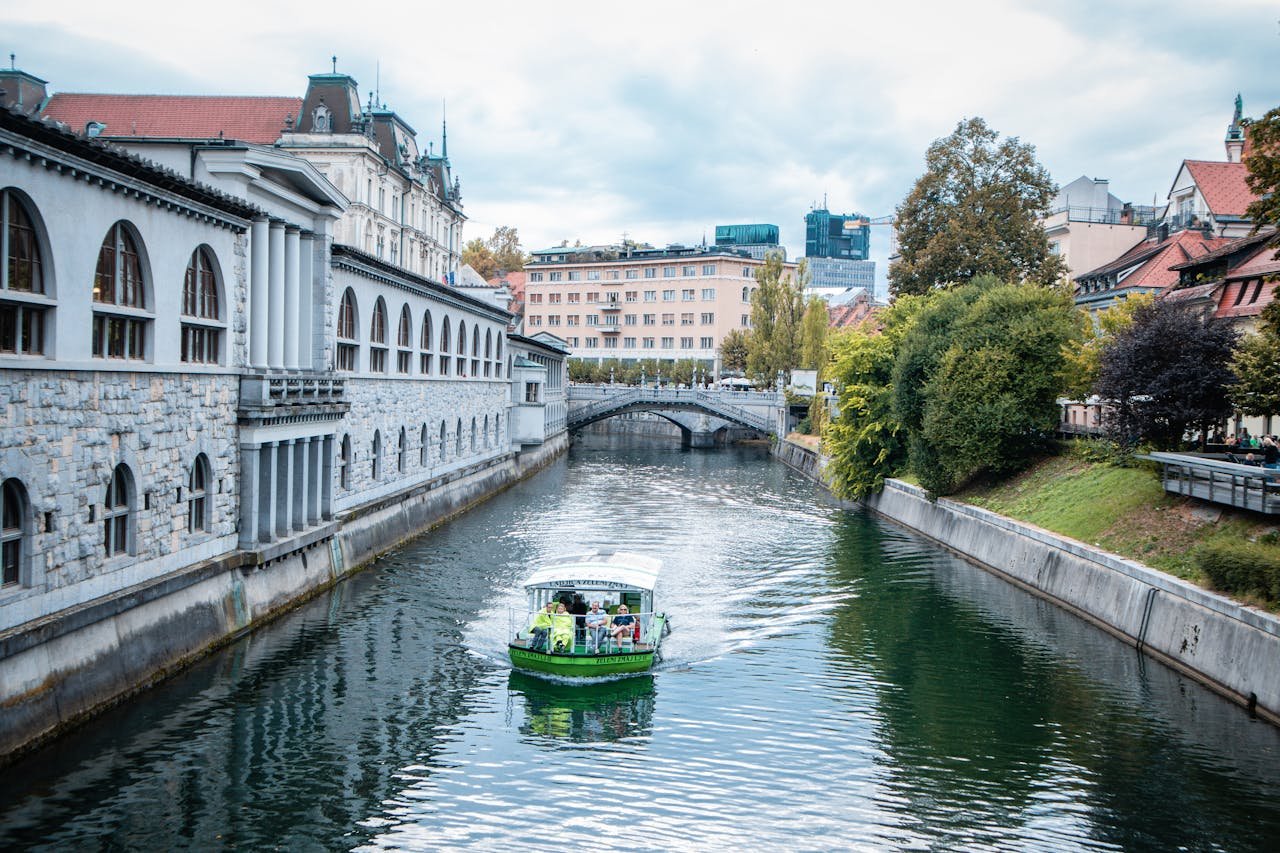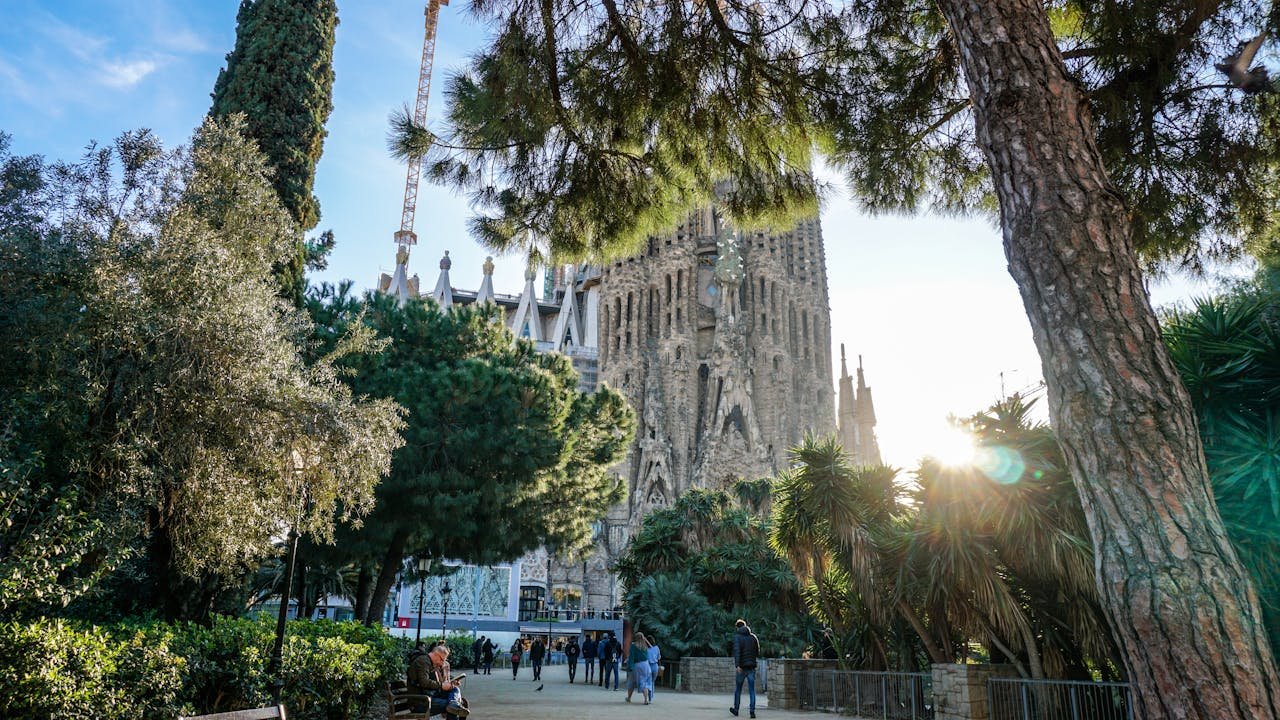Green Travel: Best Eco-Friendly Destinations in Europe 2025

Just imagine exploring breathtaking landscapes while minimizing your environmental footprint. When it comes to Eco-Friendly Destinations in Europe, the continent offers some of the world’s most sustainable travel spots, from eco-conscious cities to pristine natural retreats. Whether you prefer biking through car-free towns, staying in green-certified hotels, or supporting local conservation efforts, these destinations align with your values. Discover how you can enjoy unforgettable experiences while respecting the planet—because responsible travel doesn’t mean sacrificing adventure.
Key Takeaways:
- Top eco-friendly cities: Discover destinations like Copenhagen, Amsterdam, and Ljubljana, leading in green initiatives and sustainable urban planning.
- Nature-focused escapes: Explore pristine parks, car-free islands, and eco-lodges in places like Sweden’s Lapland or Portugal’s Azores.
- Public transport & cycling: Many European cities prioritize low-emission travel with extensive bike lanes and efficient transit systems.
- Local & seasonal dining: Reduce your footprint by supporting farm-to-table restaurants and zero-waste cafés across Europe.
- Certified green stays: Choose accommodations with recognized sustainability labels, from solar-powered hotels to eco-friendly hostels.
Tantalizing Terrain: Europe’s Top Eco-Friendly Cities
From bike-friendly streets to renewable energy innovations, Europe’s cities lead the way in sustainable urban living.
Whether you’re exploring green rooftops in Copenhagen or cruising emission-free canals in Amsterdam, these destinations prove that eco-conscious travel doesn’t mean sacrificing style or convenience.

Each city combines cutting-edge sustainability with rich culture, offering unforgettable experiences for the environmentally minded traveler.
Copenhagen: Cycling Capital of the World
With over 375 kilometers of dedicated bike lanes, Copenhagen makes it effortless to explore on two wheels. Over 60% of locals commute by bicycle daily, and the city aims to become carbon-neutral by 2025.
Rent a bike and pedal past solar-powered hotels, organic markets like Torvehallerne, and the iconic CopenHill—a waste-to-energy plant with a ski slope on its roof.
The commitment to green living here is as seamless as the city’s sleek Scandinavian design.
Amsterdam: Canals, Culture, and Green Initiatives
Amsterdam’s charm extends beyond its postcard-perfect canals—it’s a pioneer in sustainable urban planning. Electric boats glide silently through waterways, while nearly 4,000 public charging stations support the city’s electric vehicle adoption.
The “Amsterdam Circular 2020-2025” strategy focuses on reducing waste, with initiatives like upcycled fashion hubs and plastic-free dining. Stay in eco-certified hotels like QO Amsterdam, which uses geothermal energy and a closed-loop water system.
Beyond infrastructure, Amsterdam’s green ethos thrives in its local culture. Farmers’ markets like Noordermarkt showcase organic Dutch produce, while vintage shops and repair cafés promote circular fashion.
The city’s “car-free” zones, including the bustling Jordaan district, prioritize pedestrians and cyclists, making it easy to explore sustainably.
Don’t miss the sustainable floating neighborhood of Schoonschip, where 46 households run entirely on renewable energy—proof that innovation and tradition can coexist beautifully.
Nature’s Embrace: Stunning Eco-Tourism Destinations
Europe’s wild landscapes offer more than just breathtaking views—they’re gateways to sustainable adventures.
From the jagged peaks of the Dolomites to the volcanic wonders of the Azores, these destinations prioritize conservation while inviting you to explore responsibly.
Whether hiking through UNESCO-protected parks or supporting local eco-initiatives, your travels leave a lighter footprint.
The Dolomites: A Sustainable Alpine Adventure
Italy’s Dolomites blend rugged beauty with eco-conscious hospitality. Over 80% of the region’s energy comes from renewable sources, and refugios (mountain huts) like Rifugio Lagazuoi use solar power and zero-waste practices.

You can traverse the Alta Via trails, where electric buses and bike-sharing programs minimize emissions, or stay in certified “Green Pear” hotels committed to sustainability.
The Azores: Pristine Nature and Responsible Tourism
This Portuguese archipelago is a model of eco-tourism, with 30% of its land protected as nature reserves. Geothermal energy powers much of São Miguel, and whale-watching tours adhere to strict guidelines to protect marine life.
Your visit supports local guides and farms practicing regenerative agriculture, ensuring the islands’ biodiversity thrives.
The Azores’ commitment extends to certifications—every island holds EarthCheck’s Silver status, and accommodations like Furnas Boutique Hotel use thermal springs for heating.
You’ll find trails like the PR4 São Miguel, where endemic flora like the Azorean juniper flourishes, and community-led initiatives like “Plastic Free Azores” keep beaches pristine.
Urban Innovations: Sustainable Practices in European Cities
European cities are leading the charge in sustainable urban living, blending innovation with eco-conscious policies. From zero-waste initiatives to renewable energy projects, these destinations prove that urban spaces can thrive while minimizing environmental impact.
Whether you’re exploring Ljubljana’s car-free city center or Barcelona’s solar-powered streets, you’ll find inspiring examples of green urbanism at every turn.
Zero-Waste Initiatives in Ljubljana
Ljubljana, Slovenia’s capital, became Europe’s first zero-waste capital by diverting 80% of its waste from landfills.

You’ll notice a city-wide emphasis on recycling, composting, and reusable packaging, with free drinking fountains reducing plastic bottle use.
The innovative Voka Snaga waste management system ensures nearly all organic waste is repurposed, while thrift stores and repair cafes encourage circular consumption.
Strolling its pedestrian-friendly center, you’ll see sustainability woven into daily life.
Renewable Energy Solutions in Barcelona
Barcelona mandates solar panels on all large buildings, aiming for 10% of energy from renewables by 2030. The city’s “Superblocks” project reclaims streets from cars, cutting emissions by 25% in pilot zones.

You can spot solar thermal systems heating water in 58% of hotels, while wind turbines dot the nearby Collserola hills. The 22@ innovation district showcases smart grids powering startups with 100% clean energy.
Barcelona’s renewable push includes Europe’s largest low-emission zone, covering 95 km². The city’s 300+ sunny days a year make it ideal for solar, with over 1,000 installations on public buildings.
Projects like the Zona Franca’s solar canopy—spanning 15 football fields—highlight its ambition. By integrating renewables into urban planning, Barcelona proves sustainability and city life can coexist seamlessly.
Culinary Sustainability: Farm-to-Table Experiences
Europe’s farm-to-table movement transforms dining into an eco-conscious experience, connecting you directly with local growers and seasonal ingredients.
From Parisian organic markets to Scandinavian zero-waste restaurants, these culinary hotspots prioritize sustainability without sacrificing flavor.
By supporting these initiatives, you reduce food miles and contribute to regional economies while savoring dishes crafted with ethical transparency.
Organic Markets and Local Producers in Paris
Paris thrives with organic markets like Marché des Batignolles, where 80% of vendors are certified organic. Stroll past stalls piled high with heirloom vegetables, artisanal cheeses, and freshly baked sourdough—all sourced within Île-de-France.
The city’s Ruche Qui Dit Oui network lets you order directly from farmers, cutting out middlemen and packaging waste.
Eco-Friendly Dining in Scandinavia
Scandinavia leads in sustainable dining, with Copenhagen’s Amass composting 100% of its food waste and foraging 60% of ingredients locally.

Oslo’s Rest upcycles “ugly” produce into gourmet dishes, while Stockholm’s Fotografiska serves entirely plant-based menus in a carbon-neutral venue.
Beyond restaurants, Sweden’s Hälsingegårdens farm stays offer cooking classes using hyper-local ingredients, and Finland’s Nolla became the region’s first zero-waste bistro by eliminating trash bins entirely.
These innovations prove sustainability and luxury coexist seamlessly.
Travel Smart: Tips for Eco-Conscious Exploring
Packing light reduces fuel consumption, while reusable water bottles and utensils cut down on single-use plastics.
Opt for digital tickets and maps to minimize paper waste, and support local businesses to boost community-driven sustainability. Research destinations like Copenhagen or Ljubljana, where bike-sharing programs and green spaces make low-impact exploration effortless.
After your trip, offset your carbon footprint through verified programs like MyClimate or Gold Standard.
Transportation Choices for a Greener Journey
Trains emit up to 90% less CO₂ per passenger than short-haul flights—choose rail networks like Germany’s Deutsche Bahn or France’s TGV for cross-country travel.
In cities, use electric trams (like Amsterdam’s) or rent bikes through apps such as Donkey Republic. For remote areas, carpool with platforms like BlaBlaCar to share rides and reduce emissions.
Choosing Sustainable Accommodations
Look for hotels with third-party certifications like Green Key or EU Ecolabel, which audit energy efficiency and waste reduction.
Sweden’s Treehotel and Portugal’s Areias do Seixo blend luxury with renewable energy and zero-waste policies. Hostels with eco-credentials, like Berlin’s Generator, often use solar power and organic linens.

Beyond certifications, prioritize lodgings that source food locally—Switzerland’s Whitepod offers meals with ingredients from within 30 miles. Some properties, like Slovenia’s Eco Resort Šobec, even treat wastewater on-site.
Engaging with these practices ensures your stay supports circular economies and reduces environmental strain.
Conclusion
Considering all points, Europe offers a wealth of eco-friendly destinations that align with your sustainable travel goals.
From cities prioritizing green infrastructure to regions embracing renewable energy, you can explore breathtaking landscapes while minimizing your environmental impact.
By choosing destinations committed to conservation and responsible tourism, you contribute to preserving these places for future generations.
Whether you prefer urban hubs with efficient public transport or rural retreats with eco-certified accommodations, Europe provides diverse options for your next green adventure.
FAQ
What are the top eco-friendly cities to visit in Europe?
Europe boasts several cities leading in sustainability. Copenhagen, Denmark, aims to be carbon-neutral by 2025, with bike-friendly streets and renewable energy. Stockholm, Sweden, runs on 99% renewable energy and has vast green spaces. Amsterdam, Netherlands, promotes cycling and electric transport, while Ljubljana, Slovenia, is car-free in its center and focuses on waste reduction.
How can I travel sustainably in European destinations?
Opt for trains or buses over short-haul flights, stay in eco-certified hotels, and support local businesses. Use reusable water bottles, avoid single-use plastics, and explore cities by walking, biking, or public transport. Many destinations, like Freiburg, Germany, offer bike rentals and solar-powered facilities.
Which European destinations are best for eco-tourism?
Costa Brava, Spain, emphasizes responsible coastal tourism, while Azores, Portugal, protects marine life through eco-certified tours. Switzerland’s Alpine regions promote low-impact hiking, and Norway’s fjords prioritize conservation. Estonia’s Lahemaa National Park combines nature preservation with cultural heritage.
What sustainable practices do eco-conscious European hotels follow?
A: Many hotels use renewable energy, reduce water waste with low-flow fixtures, and source local organic food. Some, like Treehotel in Sweden, are built with minimal environmental impact. Look for certifications like EU Ecolabel or Green Key when booking.
Are there car-free eco-friendly destinations in Europe?
Yes! Zermatt, Switzerland, bans cars, relying on electric taxis and horse-drawn carriages. Hydra, Greece, permits only donkeys and boats. Venice, Italy, is naturally car-free, with canals and walking paths reducing pollution. These destinations prioritize clean air and pedestrian-friendly spaces. — This FAQ covers key aspects of green travel in Europe while maintaining your requested structure and avoiding specified terms. Let me know if you’d like adjustments!



